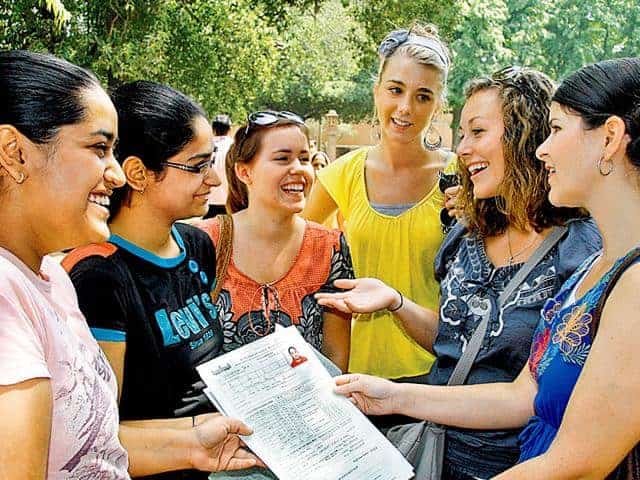The University of Delhi (DU) gives admission to students from not just India, but abroad as well. This article brings to you what international students feel about the University.
A lot of people talk about their perceptions of DU, but there is little mention of an international student’s perspective of the University. These are the students who have crossed miles just to be in a college of their choice. The motivation of coming to India for some is to experience cultural diversity, while for others is the ranking of the University.
After contacting a lot of students studying in various colleges of DU, belonging to countries all around the world, DU Beat found out about their mixed experiences. While some students praise the University for everything, others did not have their expectations met. What a student experiences might also depend on the college that they are studying in and the facilities they are provided with.
The problems that international students face are very different from the ones that the Indian students face. The issue of homesickness remains the most important issue. The fact that they do not find too many people belonging to the same place as them also becomes depressing at times. The language barrier also creates trouble. Culture differences constitute both advantage and disadvantage. While some people get to meet and be friends with people from different places and diverse cultural backgrounds, others feel excluded.
Naomie, a student at Miranda House shared her experience of being an international student. She said, “DU is a really good university and being a student at Miranda House has been very advantageous for me. I have seen a lot of professionalism here. The classes are well-arranged, and there are good teachers. Although, I was very scared in the beginning as I did not see many international students here. But, I have made many Indian friends here and have started feeling like home.”
She further added, “The administration staff is also very welcoming. However, I feel like not much is done for international students by the college. I haven’t seen any societies which involve international students. On events like freshers’ party, I have seen students dancing to the tune of Bollywood songs.”
Another student said, “In my college, a lot of professors deliver lectures mostly in Hindi which makes it very difficult for me. However, the University is good on an overall basis, but the language barrier is the biggest issue for me.”
Mohammad from the Gambia said, “My first experience in DU was that of cultural diversity. I met people and made friends from different cultures, different backgrounds, and different countries. when I joined the University, it was highly intriguing and fascinating for me to find people from such varied places and backgrounds.”
Another student from Kenya, Edwin Kipchirchir Kiptoo said, “After taking admission in DU, I have experienced meeting different types of friendly people and different type of Indian food. My best experience is being exposed to the vast cultural diversity among the students of the University.”
Thus, it can be said that the experiences of international students differ from person to person and college to college. The journey has its pros and cons. The inclusion of more and more international students is also important for making DU recognised globally. It is true that if the University wants to get more students from other countries, then it needs to start providing them with more and better facilities to make them feel included.
Feature Image Credits: Hindustan Times
Priya Chauhan.










